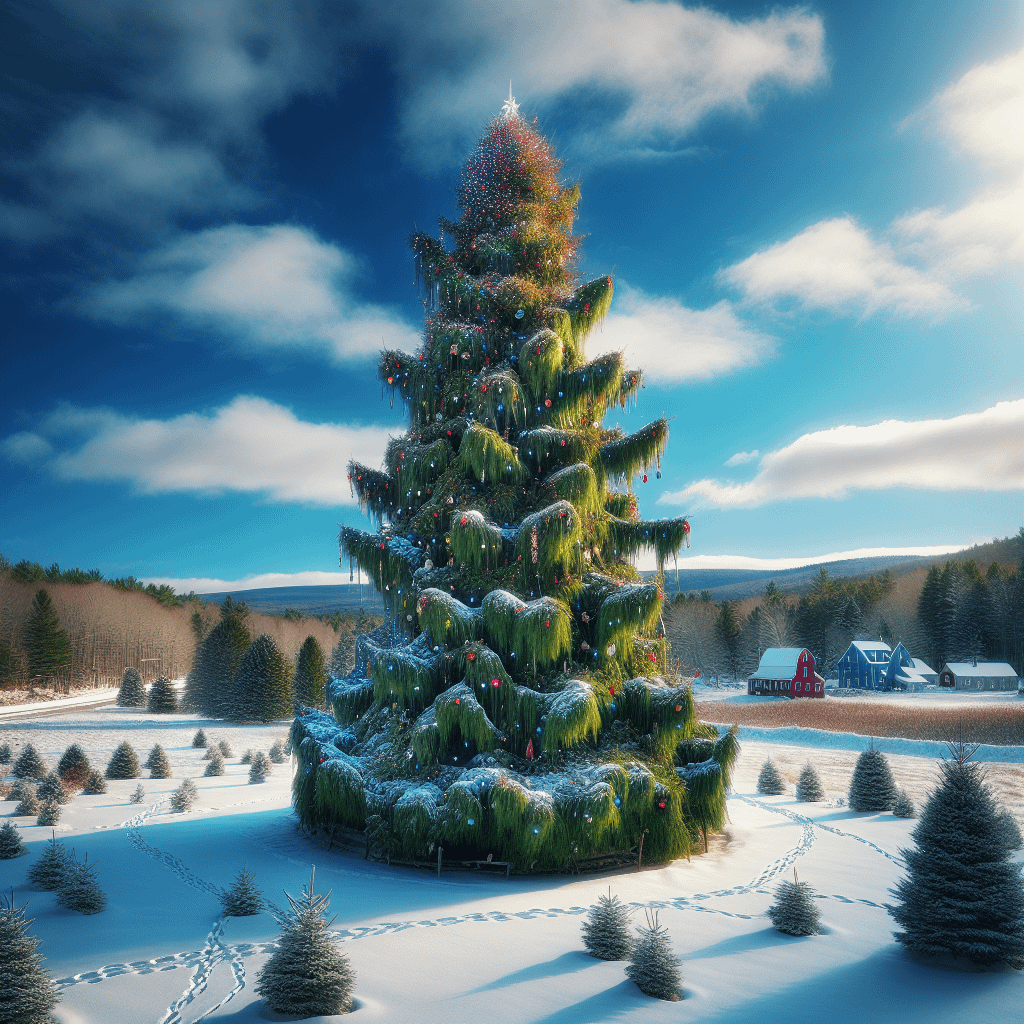Eleven days before Christmas, an outdoor firepit crackles next to the gift shop at South Farm in Bethlehem, N.H. A speaker plays carols as cars roll into the small parking lot.Nigel Manley, bundled up in wool pants and a red and green hat with a festive pom pom, runs the show. He’s a big deal in the Christmas tree world: he’s on the board of the national Christmas tree association, and a leader in several industry groups in New England.He fell into the job while working at The Rocks. He was working for a cattle farmer, helping with a variety of jobs. But then, the farm started growing Christmas trees.“Basically I could either do a Christmas tree farm or not have a job. So Christmas tree farming seemed to be like a good idea.”He loved it enough to start his own farm in 2014. Nowadays, he says he sings “Jingle Bells” all year round.Manley plants about 900 trees a year. And he likes to experiment with new species, branching out from the Frasers and Balsams that have dominated the Christmas market for years.Several years ago, he happened upon the Korean fir. They have a silvery-blue sheen, because their needles twist as they grow, showing their undersides. And they smell citrusy, like oranges.Manley says they’re also tough to prune; they don’t always grow straight up. So in 2021, he started planting a hybrid version pollinated with Balsam pollen.Article continues after…
Cross|Word
Flipart
Typeshift
SpellTower
Really Bad Chess
“They’ve got the beautiful color. They’re growing well,” he said. “They’re easier to prune by far.”Now, those hybrids are a third of the trees he’s planting each season. They grow fast. People like how they look and smell. And they’ve also had an unexpected benefit. They’re more resilient to the kinds of changes he’s seeing on his land, as warmer temperatures and wet summers cause trouble.“We’re losing more Fraser firs because of the wetness, phytophthora root rot in particular,” he said.While Manley didn’t set out to find a Christmas tree that could thrive better in changing conditions, the hybrid firs just might fit the bill.“It seems like in wetter conditions they’ll put up with more water. And just based on how they’re growing and knowing it has got warmer, I say they do really well in it,” he said.Korean fir trees have had a difficult time in South Korea recently, where they make up a forest on Hallasan Mountain on Jeju Island. There, National Geographic reports they’re threatened by heat, erosion and increasing extreme storms.In New Hampshire, though, the business for hybrid Korean/Balsam fir trees is thriving.Jay Weir, who owns Weir Tree Farms in Colebrook, N.H., says he’s ramped up production of seedlings, which he sells to growers across the country, including Manley.“A lot of people really like the way these trees are performing,” he said. “They’ll grow in just about any type of soil, very resistant to root rots and pests.”They don’t seem to

